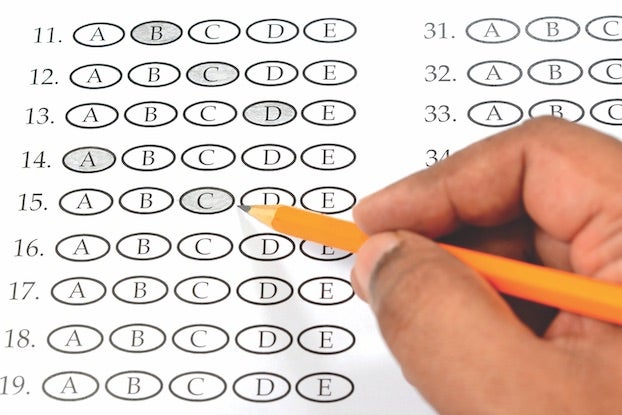Military community, Vernon Parish celebrate completion of technology-enhanced learning centers
Published 10:38 am Friday, November 17, 2023

- DCIP Learning Center
By Emily Burleigh
Gov. John Bel Edwards, alongside several state and local dignitaries, gathered to celebrate the completion of five technology-enhanced learning centers in the Vernon Parish school district.
In September 2020, the U.S. Department of Defense granted $7.5 million through the Defense Community Infrastructure Pilot (DCIP) Program to build the centers at the five schools that serve the 2,000 Fort Johnson military dependents in Vernon Parish: Leesville High School, Leesville Junior High School, Vernon Middle School, Pickering Elementary and Pickering High School.
DCIP creates quality of life enhancements in military communities. In Vernon, this is done through The Campus Connections and Learning Spaces Project, which will provide indoor and outdoor learning environments that include state-of-the-art wireless communications, digital displays and interactive learning tools to military students – who make up nearly a quarter of the VPSB student body – and their civilian peers. Through these technological upgrades, students in Vernon Parish will receive an enhanced Science, Technology, Engineering, Art and Mathematics (STEAM) education.
Edwards explained that the benefits will have extended outside of the parish lines, stating that those at Fort Johnson have an “outsized influence” in the United States.
“Many of the people you are educating here are going to go on to have very senior careers in the army. … When you put it all together, in terms of the education that you provide here to individuals, the training that you provide here to units, there really isn’t a community anywhere in the country that is having more of an impact on our country and on our security than right here in Leesville, in Vernon Parish.”
To secure the grant, Louisiana Economic Development will provide a 10 percent non-federal match. Louisiana Department of Economic Development Secretary Don Pierson said that getting funding from DCIP took effort.
“We didn’t just happen upon this great opportunity. We had to get into the mix and compete and win.”
Vernon Parish School Board Superintendent James Williams said that the institution of the learning centers is a “result of cooperation and collaboration between a small community and a small community school system, and several state and federal players.”
“It’s truly a positive impact for our educational enhancement of our students, and the quality of life for our students and their families. … This is a true example of the results we can enjoy when everyone works together and tries to do what’s best for our kids.”
As students earn “faster and different” than the generations that came before them, Edwards believes that “an investment in our students is an investment in the future of our entire state.”
“By equipping schools with new technology, we will improve the quality of life for thousands of Fort Johnson families, and we will strengthen the entire surrounding community at the same time.”
Lisa Lohman, curriculum director, VPSB, said that since VPSB is “consistently rated” as an A district by the Louisiana Department of Education, the five learning centers will “only serve to enhance the opportunities that we afford to all our students.”
Col. Sally Hanna, DCIP project officer, Office of Local Defense Community Cooperation said that “the center piece” for many military families are childcare facilities and schools, and VPSB is no exception.
“That is where the sense of one community is felt the most, and it is absolutely exemplified by the commitment of the Vernon Parish School Board and their collaboration with the Louisiana Department of Economic Development for this campus.”
Edwards echoed this, noting that Fort Johnson is one of the only installations in the United States that is consistently growing and is so ingrained in the community that houses it.
The economic impact of Fort Jonhson is critical.
The annual economic impact of military installations across the state is $9.64 billion in contributions, creating over 77,000 jobs. Fort Johnson, the largest non-state government employer in Louisiana, contributes at least $1.14 billion.
It is important to reinvest in education, he said. Currently, the State is investing more in education for all grade levels than has been seen in Louisiana’s history.
“Our success as a state, as a nation, will depend on the degree to which we equip our people with the knowledge and skills necessary to be successful, and if we will do that, if we will stay on course, we are going to succeed beyond our wildest dreams.”





